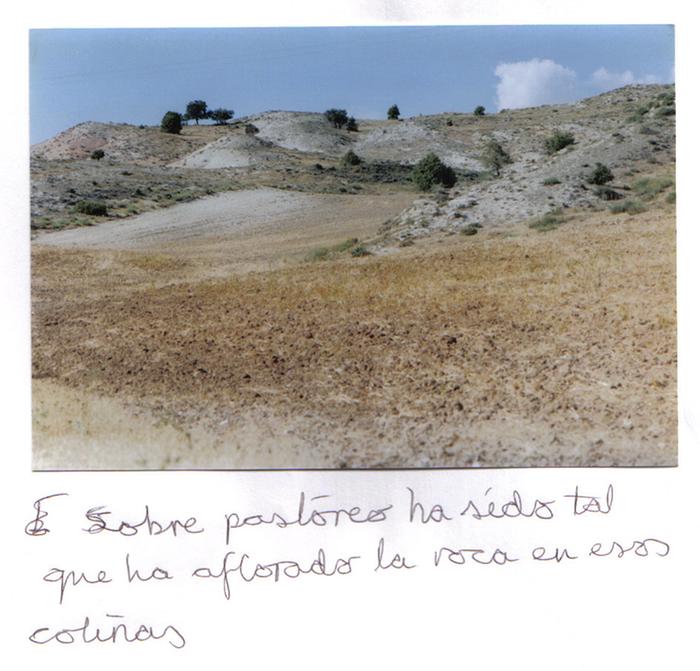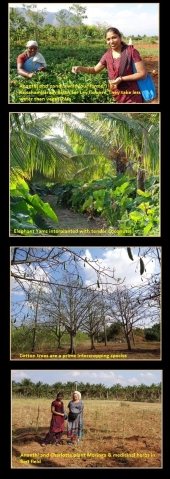









Order copies of my book, Dairy Farming: The Beautiful Way at
www.createspace.com
Help spread the word! Thanks!
struggle - hustle - soul - desire




Sometimes the answer is nothing





Pecan Media: food forestry and forest garden ebooks
Now available: The Native Persimmon (centennial edition)








soloenespana.wordpress.com




Dave Miller wrote:Just wondering if there are any almond farmers here who are either practicing or are interested in organic, permaculture, or polyculture methods in their almond orchard?
I am coming to the conclusion that the industrial monoculture almond industry in California (around 1 million acres) is going to crash. In the larger scheme of things, this could actually be a good thing, if there are almond farmers who survive the crash - because all eyes will be on them. IMHO the survivors will be the organic/permie farmers. We should rally around these farmers, to ensure that they not only survive, but thrive, and thus have 1 million acres of farmers coming to them seeking advice. If there are no survivors, the farmers will continue to turn to "Big Ag" for solutions, which probably won't be pretty.
In other words, this almond crash could be a huge tipping point to get permaculture methods widely adopted.
I could help by providing materials (hollow stems) and advice on increasing the number of native bees on the farms. I have been doing this on my property for several years and it has been going well.




Jacques Naude wrote:
Dave Miller wrote:Just wondering if there are any almond farmers here who are either practicing or are interested in organic, permaculture, or polyculture methods in their almond orchard?
I am coming to the conclusion that the industrial monoculture almond industry in California (around 1 million acres) is going to crash. In the larger scheme of things, this could actually be a good thing, if there are almond farmers who survive the crash - because all eyes will be on them. IMHO the survivors will be the organic/permie farmers. We should rally around these farmers, to ensure that they not only survive, but thrive, and thus have 1 million acres of farmers coming to them seeking advice. If there are no survivors, the farmers will continue to turn to "Big Ag" for solutions, which probably won't be pretty.
In other words, this almond crash could be a huge tipping point to get permaculture methods widely adopted.
I could help by providing materials (hollow stems) and advice on increasing the number of native bees on the farms. I have been doing this on my property for several years and it has been going well.
Hi Dave,
I am in the process of buying a 40 acre farm in Portugal and am very keen to start a permaculture Almond orchard. On further reading I am a bit worried about the machinery necessary in harvesting, meaning the floors need to be pretty clean and they are costly!
Bought Martin Crawfords new book "Grow your own nuts" and it seems like a good start.
Any of you know of harvesting methods for say 6 acres which wont entail investing in a huge machine? Guess I could employ half the small village for 2 weeks to hand pick?








 So if you have a dog, you might encourage it to chase squirrels out of your nut orchard.
So if you have a dog, you might encourage it to chase squirrels out of your nut orchard.












William Bronson wrote: I am building a tiny orchard. Right now it has a variety of pear trees and one peach.
To avoid the trap of too much fruit, I was considering nuts.
Almonds fit my diet and the marketplace,and some seem to fit my climate.
I will be running poultry among the trees.
I aim to supply chefs and foodies in my area,after I get enough for myself.
Water seems to be the issue in California, late frosts here.
I will use grafted trees,I don't have the room for "spitters".
Where should I look for cold hardy almond trees? Any good vendors?
Do I need to keep bees or could the wild local ones suffice?
I've grown some nice peaches without irrigation,I think the rainfall and soil banked water will suffice for the almonds.
I never got any peaches due to squirrels, so I think the almonds will certainly need netting.

|
Police line, do not cross. Well, this tiny ad can go through:
Freaky Cheap Heat - 2 hour movie - HD streaming
https://permies.com/wiki/238453/Freaky-Cheap-Heat-hour-movie
|





